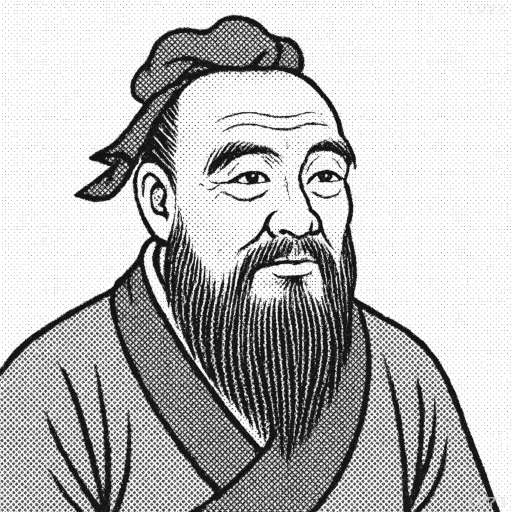“The firm, the enduring, the simple, and the modest are near to virtue.”

- 551 BC – 479 BC
- Han ethnicity
- Philosopher, educator, politician
table of contents
Quote
“The firm, the enduring, the simple, and the modest are near to virtue.”
Explanation
In this saying, Confucius highlights qualities that he sees as closely aligned with virtue: firmness, endurance, simplicity, and modesty. For Confucius, these traits represent a grounded and authentic approach to life that brings one closer to living virtuously. Firmness and endurance reflect resilience and commitment to one’s values, even in difficult times. Simplicity signifies a focus on what truly matters, free from excess or pretension. Modesty represents humility and a respect for others, avoiding arrogance and self-importance.
This perspective is particularly relevant today, where complexity, self-promotion, and instant gratification are often emphasized. Practicing endurance and firmness in our values helps us navigate life’s challenges with strength. Embracing simplicity allows us to focus on what genuinely contributes to our well-being, whether it’s cultivating meaningful relationships or engaging in purposeful work. Modesty, too, fosters authentic connections, as humility opens the door to mutual respect and learning from others.
Confucius’s insight encourages us to seek virtue through authentic and grounded qualities. By embracing firmness, endurance, simplicity, and modesty, we create a strong foundation for a life of integrity and peace. These traits bring us closer to lasting contentment and fulfillment, helping us live in harmony with our values and inspiring those around us to do the same.
Would you like to share your impressions or related stories about this quote in the comments section?



